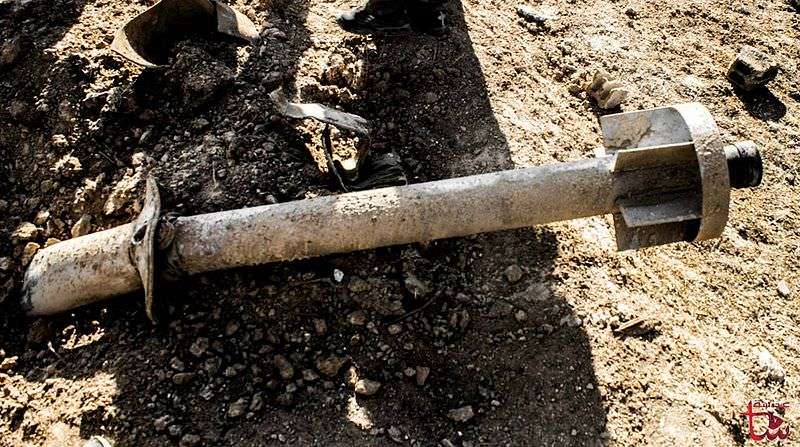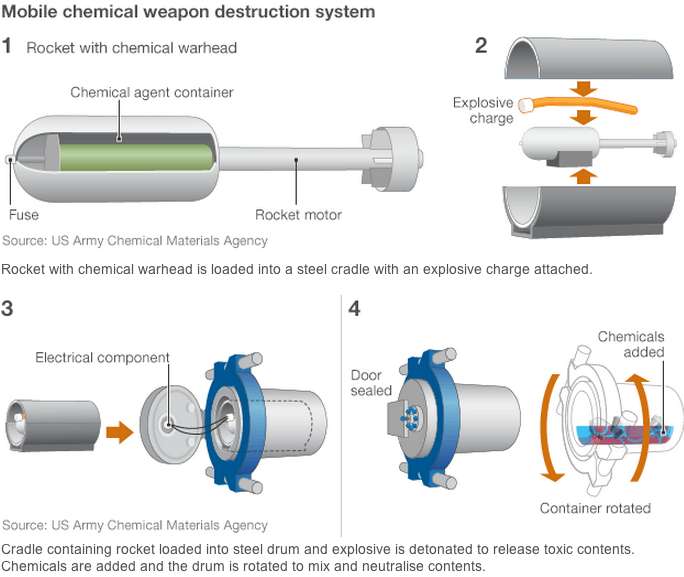OPCW Destroys Syrian Chemical Weapons Equipment, Still No Sign War Will End Soon


The Organization for the Prohibition of Chemical Weapons (OPCW), which won the Nobel Peace Prize earlier this month, has said that Syria's declared chemical weapons equipment has been destroyed ahead of schedule.
Although the equipment used for producing and filling chemical weapons has been destroyed, the weapons themselves remain intact but have been placed under a seal. The Assad regime has until mid-2014 to destroy the weapons.
According to the BBC, there are two main way chemical weapons can be destroyed, by either incinerating them or by adding water and "a product like caustic soda" to the weapons' toxic chemicals, thereby neutralizing them. A graphic from the BBC illustrating this process is below:

The OPCW deserves praise for completing their goal of destroying Syria's chemical weapons equipment ahead of schedule in what must be a difficult and dangerous situation. However, while there is certainly progress being made in having Syria's chemical weapons destroyed there are no signs that the war in Syria is going to be ending anytime soon.
The anticipated Geneva 2 peace conference is facing delay thanks to differences between the U.S. and Russia concerning rebel representation. Time reported yesterday that neither Assad nor opposition leaders have agreed to attend the conference. The diversity of Assad's opposition means that even if rebel representatives do attend Geneva 2 under conditions agreed to by the U.S. and Russia there will remain many rebels who will reject whatever diplomatic proposals the talks produce.
This diplomatic mess comes amid news of more violent spillover into Lebanon, a confirmed polio outbreak in northeastern Syria, and starvation being used as a tactic by Assad's forces. As happy as some may be that the OPCW has destroyed Syria's declared chemical weapons equipment the fact remains that chemical weapons are responsible for a small fraction of the casualties in the war in Syria and the OPCW's mission will not significantly change the horrific levels of barbarism seen in that war-torn country.


Show Comments (9)